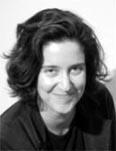Schmid, Sonja | Austria

Sonja Schmid was born in Graz, Austria. She graduated in Slavic studies, Philosophy, and Linguistics at the University of Vienna, Austria, in 1997. She also completed a program on "Culture and Environment" at the Institute for Advanced Studies at Vienna. Before returning to graduate school, she worked as a research and teaching associate at the Institute for Philosophy of Science and Social Studies of Science (University of Vienna), and as a research assistant in a project on intercultural communication (Vienna University of Economics and Business Administration).
Since 1999, she is a graduate student at the Department of Science & Technology Studies at Cornell University (USA), where she expects to complete the requirements for her MA next year. Her main interests include popularization of science and technology, science and democracy, and sociological aspects of (post-) Soviet nuclear science and technology.
Fellow at the Institute for Advanced Studies on Science, Technology and Society, from October to December 2001.
Project at IAS-STS:
Transformations of popular-scientific discourses on nuclear power in Soviet and post-Soviet print media.
Nuclear power is often treated as a paradigmatic case for expert/lay disagreement, but also for controversies among experts. It was in the context of nuclear energy that traditional risk assessment strategies were fundamentally challenged. In the West, anti-nuclear and other environmental groups deconstructed the dominant risk discourse and (often successfully) fought for more transparent and democratic decision making processes.
During Gorbachev's perestroika, the Soviet Union witnessed similar discussions-especially after the Chernobyl disaster. However, there are important differences in timing, scale, and content, according to the particular context of a totalitarian state. The object of my study is therefore the transformations of the "public image" of nuclear power, the ways this image has been discursively represented in Soviet and post-Soviet print media.
I focus on representations of risk, scientific-technical expertise, and the public, and try to identify changes and continuities affecting these concepts. During the transition period, the popularization discourses resonate with changing technical, social, and political contexts. I compare articles from a period of roughly fifty years, and from different types of periodicals (ranging from scholarly to popular journals), with the Chernobyl accident of 1986 and the disintegration of the Soviet Union 1991 as two major turning points. Methodologically, I rely on the sociology of risk, risk communication research, discourse analysis (especially the historical version of Critical Discourse Analysis), and rhetoric.
